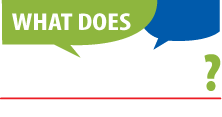Phrases starting with the letter: A B C D E F G H I J K L M N O P Q R S T U V W X Y Z
Definition of: me
(mē) pron.
The objective case of I. ♦ It's me, etc. Anyone who answers the question “Who's there?” by saying “It's me” is using acceptable colloquial idiom. Here It is I would seem stilted, although at the formal level of writing it is expected: They have warned me that it is I, and not he, who will have to bear the brunt of the criticism. After a finite impersonal form of the verb to be, as it is, it was, etc., a personal pronoun should, according to prescriptive grammar, be in the same case as the subject: the nominative; accordingly, at the formal level, we find It is he, It is we, It is they, etc. Since only the personal and relative pronouns retain different inflected forms for the nominative and objective cases, the rule might appear to be invented to cover this one exceptional situation. The normal subject-verb-object order of the English sentence creates a strong expectation that what follows the verb will be in the objective case, and perhaps for this reason popular usage has long favored It's me over the formal It is I. British and American playwrights in recent years have also represented their characters, and not only the uneducated speakers among them, as saying It's him, It's her, It's them, etc. In spite of the exact parallel in construction with It's me, these expressions are not yet condoned to the same extent, even at the colloquial level.

Comment about this word, ask questions, or add new information about this topic: